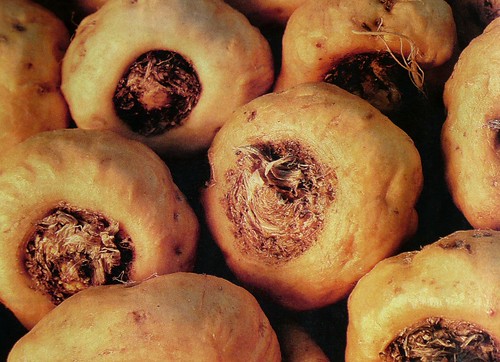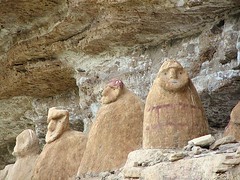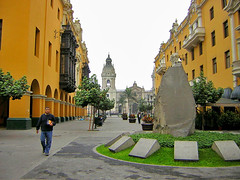Peru’s patent win strikes blow against biopiracy [Featured]
Zoraida Portillo, writing for SciDev.Net, brings us news that Peru has stopped several foreign companies from registering patents on products traditionally developed by Peruvians.

Lepidium meyenii or simply "Maca"
[LIMA] Peru has prevented several foreign companies from taking out patents on products by demonstrating that they were developed using the traditional knowledge of Peruvians.
Over the past few months, the Peruvian National Commission Against Biopiracy has shown authorities from France, Japan, Korea and the United States that products submitted for patents were developed using the traditional knowledge of Peruvian people.
It showed that the products lacked the innovation and inventiveness required for patents.
“This is a good example of how coordinated action between the state, the business sector and civil society can prevent inappropriately granted patents related to genetic resources and traditional knowledge,” Andrés Valladolid, technical coordinator at the commission, told SciDev.Net.
The products are derived from Lepidium meyenii [Maca], Plukenetia volubilis Linneo [Sacha Inchi] and Myrciaria dubia [Camu Camu] — three plants well known among indigenous Peruvian populations for their medicinal properties.
“I suspect a lot of developing countries will be quite impressed by what Peru has achieved and may consider doing something similar by establishing a department to investigate biopiracy allegations,” says Graham Dutfield, professor of international governance at the University of Leeds, United Kingdom.
“Some will say that the refusal of the patents shows how well the patent system can operate. Consequently, it is a matter of monitoring the situation and gathering prior evidence to attack questionable patent applications,” Dutfield adds.
“Others will say that since not every country is going to make as much effort as Peru to challenge bad patent applications, the lesson to be learned is that the patent system effectively promotes biopiracy — and needs serious reform to avoid the misappropriation of traditional knowledge.”
The commission monitors 69 Peruvian genetic resources on databases at the world’s main patent offices. “We don’t want to forbid companies from using our genetic resources or traditional knowledge — but they have to reward the indigenous people fairly,” Valladolid says.
But Michel Pimbert, director of the Sustainable Agriculture, Biodiversity and Livelihoods programme at the International Institute for Environment and Development, is sceptical about the likelihood of such rewards as, he says, indigenous people’s own national governments often do not recognise their rights as citizens.
![]()
“It would be naive to think that national governments would automatically share benefits with local communities when biopiracy is prevented or compensation obtained,” he says.
Tags: biodiversity, biopiracy, camu camu, indigenous, maca, sacha inchi, [Featured]










